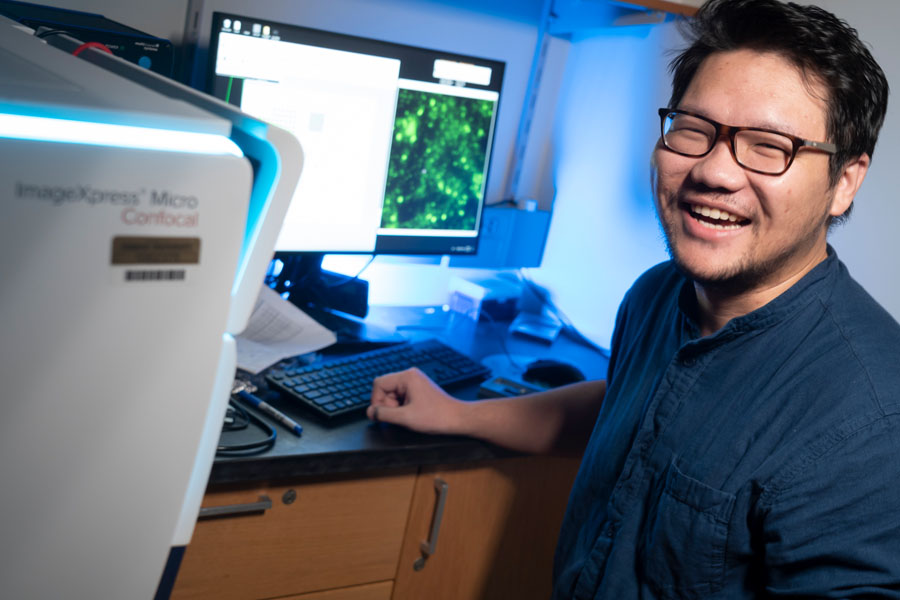Bottorff fellow researches acupuncture for neuropathic pain treatment

Neuropathic pain (NP) affects nearly 16 million Americans. It happens when the nervous system is damaged or not working properly. Diabetes accounts for about 30 percent of NP cases, with other culprits including alcoholism, shingles, phantom pain from amputation, central nervous disorders such as Parkinson’s disease and multiple sclerosis, and trauma or surgeries with resulting nerve damage.
Junkai Xie (BSChE ’18), a fourth-year PhD student in the Davidson School of Chemical Engineering, has received a Leslie Bottorff Fellowship to assist in his study of epigenetic engineering and how it applies to addressing NP as a major public health issue.
NP can come in the form of shooting, burning, stabbing, or electric-shock-like pain, tingling, numbness, or a “pins and needles” feeling. It also can be brought on by normally non-painful stimuli such as cold or gentle brushing against the skin.
Recognizing that acupuncture is a viable alternative treatment for chronic NP, he is digging deeper into the elusive underlying molecular mechanism of this treatment, particularly in the cerebral cortex.
“The goal of this collaborative project is to reveal epigenetic and transcriptomic regulation in multiple cortical regions during NP development via imaging and NGS (next-generation sequencing) technologies,” Xie explained. “Another objective is to further our understanding on the epigenetic mechanisms of NP and acupuncture treatment that can lead to potential molecular targets or engineering strategy for the treatment of NP with clearly elucidated pathways.”
As an epigenetic engineer, a large part of Xie’s research involves understanding epigenetic changes in the brain induced by traumatic injury and using epigenetic tools to normalize those changes. His experiments center around immunohistochemistry, NGS and protein engineering.
He said his Purdue training has prepared him to execute this level of research, providing him with “a systematic view and approach to evaluate this complex biological question.”
Xie, who splits his time between the Purdue campus and the Indiana University School of Medicine in Indianapolis, feels fortunate to be named a Bottorff recipient.
“I am very humbled to receive this fellowship," Xie says.
More information: https://my.clevelandclinic.org/health/diseases/15833-neuropathic-pain
